Former President Barack Obama is set to make his first major speech since leaving the White House in January. Obama will return to his roots and discuss community organizing. Plus, Vice President Mike Pence made his first major trip to Asia since taking office. And what does the future of the Democratic Party look like ahead of the 2018 midterm elections.
Special: Obama to make first post-presidency speech and VP Pence travels to Asia
Apr. 21, 2017 AT 9:25 p.m. EDT
TRANSCRIPT
Notice: Transcripts are machine and human generated and lightly edited for accuracy. They may contain errors.
ROBERT COSTA: Hello. I’m Robert Costa. And this is Washington Week Extra, where we pick up online where we left off on the broadcast.
On Monday, former President Obama will make his first public appearance since leaving the White House. The last time we saw him, he was kiteboarding in the British Virgin Islands with billionaire businessman Richard Branson. Jeff, Mr. Obama will give a talk at an invitation-only event at the University of Chicago on Monday. What are you hearing about that speech, and what’s the theme?
JEFF ZELENY: He’s back to his roots on the South Side of Chicago, and boy, he’s coming back an entirely different person. But in many respects, I am told, this will not be a deeply political appearance. This is the first of many speeches he’ll be giving – public speeches they’re starting out with, then he’ll be giving a lot of paid speeches as well. This is his time to bankroll. But I am told the speech on Monday will not address his successor much at all. He’s going to stay –
MR. COSTA: What’s the strategy behind that?
MR. ZELENY: He’s going to stay out of the fray on this. Of course he has thoughts on health care, immigration, foreign policy, other things. But the thought is that he’s going to follow – one advisor I was talking to earlier today said that he really appreciated that George W. Bush stayed out of his way, was not critical, did not once say a word, and now President Obama finds himself in that club, the Bush club. He’s close to President George H.W. Bush. He’s become sort of – and that’s how he thinks of himself. So he is not going to go after President Trump, despite the fact that many Democrats and liberals and hungering, you know, are wanting him to say something.
You know, I think the more interesting stuff about President Obama is going to be coming at certain moments – how much he engages in the 2018 midterm elections. But in this first run-up of speeches, he’s not going to.
Interestingly, though, he will be in Germany – he will be abroad at the same time that President Trump is taking his first foreign trip, next month. Interesting timing; he was invited by I believe Chancellor Merkel to have an appearance with her, so he will sort of compete with that. But for now I’m told he is not going to go after Trump. We’ll see if he lives up to that because they’ve set a marker now.
MR. COSTA: Jeff, there’s got to be at least some veiled language in this speech.
MR. ZELENY: I’m not sure if there will be. I mean –
KELLY O’DONNELL: We’ll find it, Jeff. (Laughter.)
MR. ZELENY: Probably so. And I think that – look, I mean, he’s weighed in one time – you know, on the travel ban is the only time he’s weighed in sort of publicly. I’m told he’s going to try and be quiet. That doesn’t mean, though, you know, in private conversations he’s not sort of alarmed at what’s happening. As far as we know, President Trump and Mr. Obama have not spoken since the inauguration. Their advisors have. I still think that he, you know, wants to potentially have a dialogue. Maybe he can save health care, who knows. But we’ll have to watch on Monday.
MR. COSTA: Well, another person who’s going to have a high profile and always has for the past few months is Vice President Mike Pence, who’s winding up a 10-day trip to Asia that included a tour of Southeast Asia’s largest mosque. He called the Muslim-majority nation an inspiration to the world. Pence is an Evangelical Christian. Kelly, is his trip part of the effort by this administration, a possible effort, to soften up, perhaps, their approach around the world, especially with regards to the Muslim community?
MS. O’DONNELL: I think everything related to the vice president brings an orderliness to what he’s doing. And by saying that – in Jakarta that religion does not divide in Indonesia and it does not divide in the United States, that is not the intent of religion, that’s a calming message in that part of the world, the largest Muslim democracy. I think the vice president also, being 12 hours away, has been able to work in his own orbit and bring – certainly at every turn he’s speaking about President Trump and his steady leadership, as he likes to describe it, and his friendship to those countries that are our partners in that part of the world. But he’s also doing fence-mending. In Australia, President Trump had offended the prime minister, Malcolm Turnbull, talking about trade – removing the United States from the Trans-Pacific Partnership, very popular in Australia. And so things like that, where the vice president has an opportunity to bring a face of the administration that is more predictable, that is more familiar with governance, to speak to other leaders around the world. So part of it has been a personal story. His father served in the Korean War; taking that message to Seoul, that certainly resonates. And the vice president is sort of doing what he does well: representing the president, softening the rough edges, and delivering a very predictably clear message. He is not a guy who goes off points on his own. He’s clear, sometimes to the point of you know what he’s going to say next. (Laughter.) But that can be very effective.
MR. COSTA: Kelly, I remember your interviews during the campaign. You had these great walk-and-talk interviews with then-candidate Pence, then-Governor Pence, and you always had a great read on him. As he nears his 100-day mark in office, how are his confidants, those who are close to him, interpreting those first 100 days as vice president?
MS. O’DONNELL: I think they believe that he has been a model of what the administration can be in terms of outreach and working with certainly Capitol Hill. Now, we’ve talked about the fact there aren’t a lot of legislative bells and whistles to tout, so that is something that he has to bear some responsibility for as well. He has made a path to Capitol Hill week in, week out since the administration started. But I think he is an interpreter of President Trump to other officeholders, and that can be an important function. Over time we’ll see how that wears, but at the moment he seems to be pretty happy about the role that he’s playing and the kind of relationship he continues to have with the president.
MR. COSTA: Moving from the Naval Observatory to the Oval Office, President Trump used the power of the pen to roll back more Obama administration regulations today. He signed an executive order aimed at dismantling tax rules and oversight of too big to fail financial institutions. Ylan, what’s the driving force behind this policy? And are consumers reacting in any way?
YLAN MUI: Yeah. So President Trump has said that he wanted to take a sledgehammer to regulations. And you saw that certainly today and over the past few weeks. This executive directive – there was an executive order and two presidential memos – what they do will really address part of that financial safety net that President Obama tried to put in place after the Great Recession.
Many banks say that this is something that has been overly burdensome to them, has cost them money – you know, billions of hours in terms of compliance and maybe even more in terms of actual dollar amounts. So you can really see the impact that the number of Wall Street bankers, the number of Wall Street veterans in the president’s administration might be having on the way that they shape their policies. But certainly consumer advocates would say that these are essential to safeguarding the country in the event of another financial crisis.
MR. COSTA: Who’s really driving this? We always hear about Steve Bannon, the chief strategist, and deconstruction of the administrative state. But what about Treasury Secretary Mnuchin or Gary Cohn, the economic advisor inside of the White House?
MS. MUI: You know, both of them are veterans of Goldman Sachs, a very large investment bank. And I think what you saw today was a little bit of a rollout for Treasury Secretary Mnuchin, who’s been a bit of a quieter player. He’s been in the shadow of Gary Cohn a little bit. He was in the Oval Office. It was the president’s first trip to the Treasury Department today. And so what you will see is him making more speeches as time goes on, and trying to be out front on issues like tax reform in particular, as he tries to increase his profile.
MR. COSTA: Dan, I want to return, finally, to the topic that – it really got me intrigued when I was down in Georgia. The Democratic Party. I mean, what a beat now. This – we always talk about fracturing on the Republican side. Now we’re seeing this real civil war, of sorts, on the Democratic side. What’s your early read, 100 days in, about how the Democrats are handling Trump?
DAN BALZ: You know, Bob, I agree with you. I always think that the party that loses the White House is a fascinating story, as people try to regroup. And we’ve seen that literally from the night of the election forward because it was such a shock. And so there are lots of pieces that have been kind of cast around. They’re a long way from kind of coming together as a party. Not surprising in some ways. It does take time. But as we talked about in the main program, there’s no clear leadership of the party at this point. Barack Obama will give a speech next week, as Jeff said. People will – even if it’s not political, people will begin to think about Obama and what he represents and what he represented. There will be longing for the Obama message or the Obama magic.
Secretary Clinton has been out some to, I think, mixed reviews. Her most loyal supporters are thrilled to see her out, but others are wondering whether the Clintons’ time has passed. Bernie Sanders isn’t even a Democrat and speaks for a lot of people in the Democratic Party. And then there is a younger generation that has been essentially held down by the likes of all of these others. And they are still struggling to find a voice, to gain a kind of a national following. So what you’re going to see, I mean, in addition to the focus on the midterm elections, is this – is this jockeying and rebuilding of a party at the national level. It will be a fascinating struggle to follow.
MR. COSTA: Are there any up and coming Democrats out in the states or maybe in the Congress who we should be paying attention to as this party rethinks itself?
MR. BALZ: Bob, I’m always reluctant to start naming names, partly because you forget people, but also because it’s almost too early to know that. One of the – one of the great voids in the Democratic Party right now is in the governorships, which has historically been a place that generates fresh talent that rises to the national level. Some even become president. And at this point, they lack visibility and prominence among their governors. Obviously, they hold the governorship of New York, and they hold the governorship of California. But neither of those is a natural national candidate for 2020. So you have to look elsewhere.
They have to focus on those gubernatorial races in the Rust Belt in 2018 and try to win some of those back. There are some very, you know, smart senators who want to have a national future. And we will see as they begin to go out more, you know, around – in 2018 to try to stump for others who begins to emerge. One of the problems in modern politics is that you have to have today some kind of celebrity status. Without it, it’s much more difficult. There are very few people in the Democratic Party – other than perhaps Elizabeth Warren, the senator from Massachusetts, and who is a potential 2020 candidate – who has that at this point. And so that’s another handicap that they have.
MR. COSTA: That’s such a smart point. I was just back in my home state of Pennsylvania and I thought about the governor there, Tom Wolf. A Democrat, but nobody around the country knows about Governor Wolf, with all respect, because he doesn’t have that celebrity angle. He doesn’t have that profile.
MR. BALZ: And he hasn’t tried to become a national figure. So, I mean, you’re right. I mean, he’s a – you know, he’s a smart governor. But he has no national profile.
MR. COSTA: Well, that’s it for this edition of the Washington Week Extra. While you’re online, take the Washington Week-ly News Quiz, and test your knowledge of current events. I’m Robert Costa, and we’ll see you next time.
MOST POPULAR
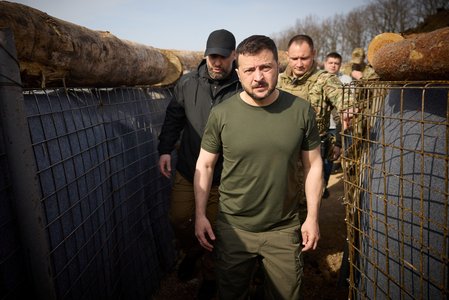
Preview: Coming Up on Washington Week with The Atlantic

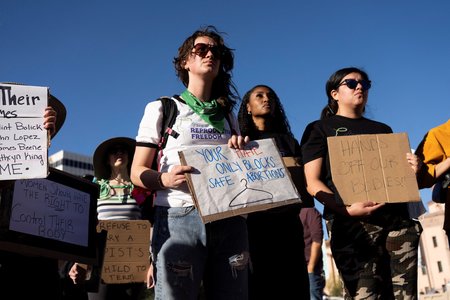
Full Episode: Washington Week with The Atlantic full episode, 4/12/24

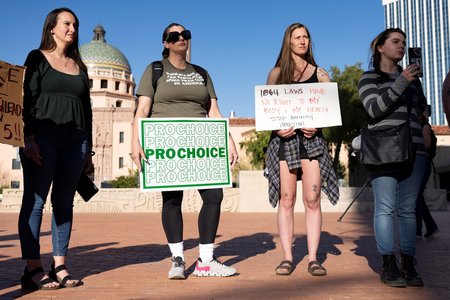
Clip: Democrats seize opportunity to make gains after Arizona abortion decision

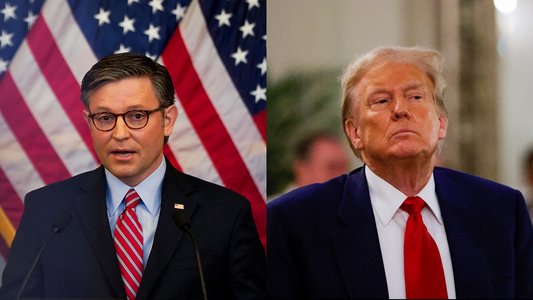
Clip: Johnson visits Mar-a-Lago to shore up support from Trump amid uncertain speakership
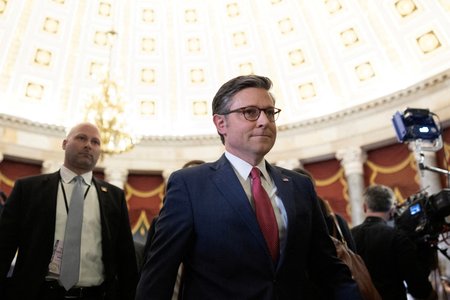
Preview: Coming Up on Washington Week with The Atlantic

© 1996 - 2024 WETA. All Rights Reserved.
PBS is a 501(c)(3) not-for-profit organization

